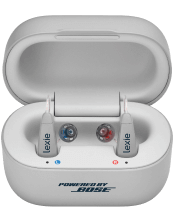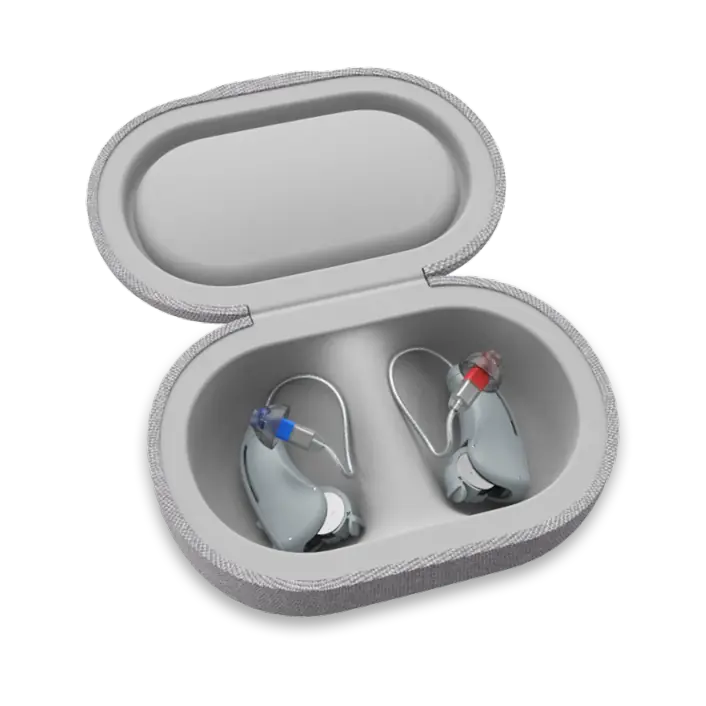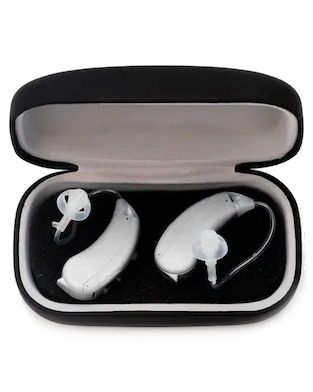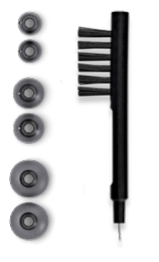Auditory Processing Disorder
Published: August 11, 2021
Updated: October 6, 2023
Auditory Processing Disorder (APD) is a unique form of hearing loss where all parts of the ear are functioning normally, but the brain has difficulty understanding the sounds it receives. Auditory processing disorder can range from mild to severe; depending on how much difficulty your brain has in processing the auditory information.
Some individuals experience hearing loss and auditory processing disorder as a combination, whilst others experience auditory processing disorder on its own. The brain becomes accustomed to not receiving and understanding sounds in individuals with hearing loss, so auditory processing is more often than not accompanied by hearing loss. One should visit their nearest hearing healthcare professional to have a hearing test and auditory processing tests done to receive a proper diagnosis and treatment thereafter.
What are the symptoms of auditory processing disorder?
- Presenting with “hearing loss” and having difficulty listening to sounds.
- Misunderstanding what a person is saying by hearing something different from what the person said.
- Unable to hear speech if there are background distractions.
- Difficulty in remembering instructions given.
- Hearing only parts of a sentence.
- Unable to focus for long periods.
- Unable to focus on one speaker if many people are talking at the same time.
- Children present with learning difficulties within the classroom setting.
What affects auditory processing?
- Noisy environments while trying to focus on a conversation.
- Situations where many people are speaking at the same time and one needs to focus on one person.
- Rooms with reverberation.
- People talking too fast or with different accents.
- Not facing a speaker while they are talking to you.
- Sitting far away from a speaker.
The most common types of hearing loss are listed such as conductive, sensorineural, and mixed hearing loss. Auditory processing disorder does not normally come up as a physical part of the ear is not affected; however, it is categorized as a type of hearing loss as the brain has difficulty perceiving sounds correctly. Auditory processing difficulties can affect adults as well as children.
Auditory processing disorder is often misdiagnosed and brushed off as “a behavioral issue”, mainly in children. This is because children come across as “not listening” or “not paying attention”, but in fact, they have an underlying issue of auditory processing. A correct diagnosis is extremely important because the correct treatment plan can be advised.
How is auditory processing disorder diagnosed?
A hearing healthcare professional will conduct:
- A full hearing assessment to rule out or diagnose hearing loss.
- A series of questions to get an understanding of a person’s listening difficulties in different types of environments.
- Specific tests to determine if one has auditory processing disorder, and the type of auditory processing disorder they present with. Children can only be tested for auditory processing disorders around the age of 7 years as the tests have been designed as such. The main areas of auditory processing disorders will be assessed, which are:
- Auditory discrimination: when a person has difficulty understanding similar sounding words/sounds e.g. hearing “free” instead of “three”.
- Auditory figure-ground discrimination: when a person has difficulty understanding speech when there is background noise present e.g. difficulty listening to a conversation during a party.
- Auditory memory: when a person has difficulty remembering information e.g. taking a long time to learn phone numbers.
- Auditory sequencing: when a person has difficulty understanding or remembering the sequence of sounds/words e.g. issues with learning number sequences.
How is auditory processing disorder treated?
- A speech-language therapist will assist in recognizing sounds, following conversations, improving reading comprehension, differentiating between common sounds, etc.
- Skills can be taught to an individual to manage the disorder better e.g. ask for clarity in a conversation, moving away from background noise, etc.
- Hearing aids can be used to reduce background noise and make speech clearer. There are hearing aids on the market that assist the wearer in finding the direction of the sound/speech, which is useful for individuals with auditory processing difficulties. Hearing aids also come fitted with built-in Bluetooth features where one can stream phone calls, the sound from the TV, or music system directly into their hearing aids.
- An FM system can be used to help the individual focus on speech only (for an adult in the workplace and a child in the classroom).
- Adjustments within the environment can be made to improve the listening environment (e.g. seating a child in front of a classroom, an adult sitting in the front row at church, etc.)
- Working together holistically with a team can greatly benefit a person with an auditory processing disorder. The team could comprise the hearing healthcare professional, a speech-language therapist, the family, a child’s school, and any other key players.
- Support groups for adults could be a good way of sharing their difficulties in a safe space, and connecting with others who have the same issue.
There are dangers if an auditory processing disorder is left undiagnosed or even diagnosed incorrectly. In children, they will have difficulty academically, socially, and even emotionally. In adults, they will choose not to become involved in conversations, their work and livelihood could become affected and they could also become isolated and depressed. Together with the correct diagnosis, professional therapy, and support, a person will learn to manage the disorder. Please reach out to your nearest hearing healthcare professional if you feel you could have an additional difficulty other than hearing loss.






